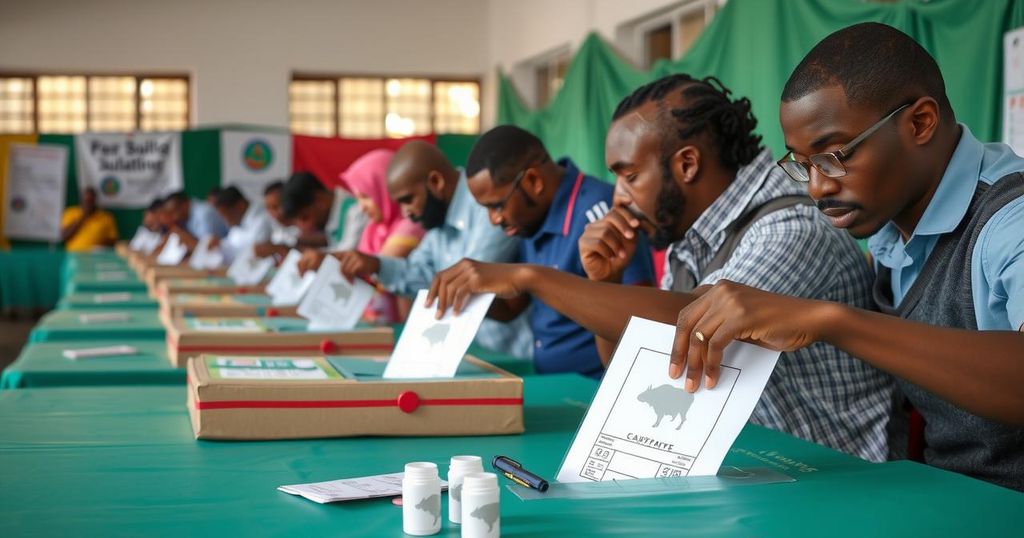Comoros voters are set to elect a 33-seat parliament, a year after President Azali Assoumani’s controversial re-election. Polling stations opened for around 338,000 registered voters, with nearly 100 candidates contesting. Opposition factions accuse Assoumani of authoritarianism and claim he is preparing his son for succession, while some call for election boycotts. Results are expected by Friday.
In the Indian Ocean archipelago of Comoros, voters are preparing to cast their ballots in the election for the 33-seat parliament. This electoral event follows last year’s re-election of President Azali Assoumani, which opposition groups have claimed was compromised by significant irregularities, allegations that the ruling party has strongly disputed. Polling commenced early on Sunday, with approximately 338,000 citizens registered to participate in the voting process. The last parliamentary elections took place in January 2020, and nearly 100 candidates have been approved by the Supreme Court to run in this election.
President Assoumani, whose tenure began in 1999 following a coup, has faced criticism for his perceived authoritarian rule, with rivals suggesting he is grooming his son, Nour El-Fath, for succession at the conclusion of his current term in 2029. In 2024, the President attributed significant governmental authority to his son, positioning him as overseer of all administrative affairs. While certain opposition factions, including Juwa led by the imprisoned former President Ahmed Abdallah Sambi, have urged a boycott of the elections, others have opted to participate. Hamidou Karihila, from the opposing Hope of the Comoros party, stated, “The Azali regime is weakened … by participating in these elections we are contributing to further exposing the flaws in its system and accelerating its inevitable fall.” Final results from the election are anticipated by Friday.
The Comoros is an archipelago located in the Indian Ocean, composed of three major islands and several smaller ones. Political dynamics in Comoros have been shaped by a series of coups and political unrest since its independence from France in 1975. President Azali Assoumani, who has had multiple terms in office, is often accused of authoritarianism, raising concerns about governance and democratic practices in the nation. The recent elections reflect an ongoing struggle between the ruling party and opposition factions, which have sought to challenge Assoumani’s authority. The political atmosphere preceding these elections has been tense, marked by allegations of electoral malpractice and calls for both participation and boycott from opposition groups.
The parliamentary elections in Comoros represent a critical moment for the nation’s political landscape, amid allegations of authoritarian governance by President Assoumani. With a significant number of registered voters and a multitude of candidates, the election will test the opposition’s resolve against a longstanding regime. The anticipated results could either affirm the current government’s position or catalyze further political challenges, shaping the future of Comoros’ democracy and governance.
Original Source: www.naroomanewsonline.com.au






